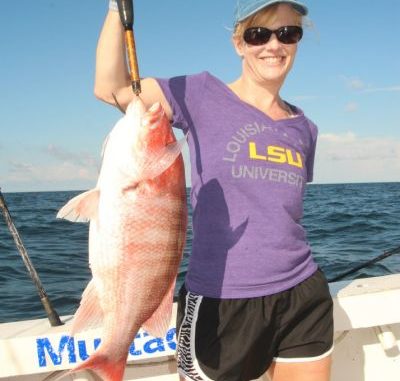
Red snapper allocation to be discussed again at Gulf Council’s February meeting
Earlier this week, U.S. Senator David Vitter (R-La.) announced the U.S. National Oceanic and Atmospheric Administration agreed to develop guidelines to review allocation quotas, and also fill its leadership role in potentially increasing the recreational quota for red snapper.
Last week, Vitter threatened to hold the Senate nomination of Dr. Kathryn Sullivan to be Undersecretary for Oceans and Atmosphere, and administrator of NOAA, according to several press releases.
“For too long Louisiana anglers have sat in waiting for NOAA to implement their own policies and required guidelines for periodic review of allocation levels,” Vitter said. “We need to make sure that the Agency in charge of managing fisheries in the Gulf of Mexico understands the importance of ensuring that policies for managing marine life and economies in the Gulf are periodically reviewed. NOAA’s lack of leadership in requiring action on the Agency’s own policy has the potential for fishermen and businesses to suffer and even waste precious resources.
“Implementing their own policy to ensure concerns are periodically addressed should be a priority.”
In the response to his letter last week, NOAA has agreed to:
1. Engage all regional Fishery Management Councils, with the goal of developing guidance documents for the periodic review of allocation quotas, and
2. Increase its leadership role on the Gulf of Mexico Fishery Management Council, including supporting the addition of Amendment 28, which has six potential options for updating allocation levels for red snapper.
“We commend Senator Vitter for stepping up to the plate on behalf of recreational fishermen and highlighting the need for NOAA to adhere to its own policy,” said Patrick Murray, president of Coastal Conservation Association. “Using data from the 1980s to dictate allocation in 2013 just doesn’t make sense. Modern economic, demographic and conservation criteria should be examined regularly to make these determinations.”
Because of the agreement, Vitter ensured the Gulf Council will at least bring red snapper allocation efforts to the table at its February meeting.
“Anglers throughout the country owe a debt of gratitude to Senator David Vitter for his common sense approach to fisheries management policy,” said Mike Nussman, president and CEO of the American Sportfishing Association. “As a result of his efforts, NOAA is now focused on the issue and the process appears to be moving in the right direction – although we will all need to stay actively involved in the process.”
The current red snapper allocation of 51 percent for commercial and 49 percent to recreational was developed in the 1980s and still stands today. To read more about the controversy surrounding the possibility of increasing the red snapper quota in favor of recreational anglers, click here for a recent article.
“Thanks to Senator David Vitter we can now look with a hopeful eye to the February 2014 meeting of the Gulf Council and hope that federal managers do their job and finally address allocation,” said Jeff Angers, president of the Center for Coastal Conservation. “Senator Vitter’s commitment to this issue appears to have finally moved the needle in the direction of government responsibility.”


